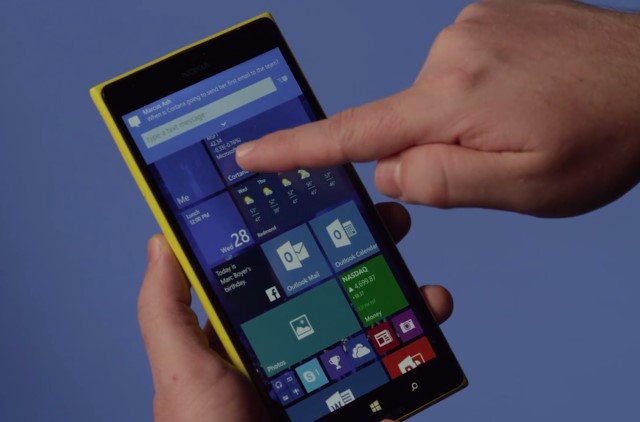
After disrupting the smartphone market in China, Xiaomi announces plan to enter the US this year
After growing its user base in China, and expanding presence in Singapore, Taiwan, India, and four other international regions, Chinese smartphone manufacturer Xiaomi is taking its first step to debut in the United States market. Hugo Barra, Xiaomi’s VP of International announces the company’s plan to sell a range of products to United States residents through its website Mi.com "in a few months".
The company, however, doesn't plan to sell its dirt-cheap smartphones in United States just yet. Instead, Barra says that Xiaomi will be selling products such as health bands, power chargers, and headphones. Xiaomi "can bring these products to market much faster because they are simpler to take to market", he said at a news conference in San Francisco.

Sling TV and others join forces with Amazon to come to Fire TV
Sling TV has just come out of private testing and no longer requires an invitation -- anyone can now use it. The next step is, logically, getting set-top box makers on board. One of those would be retail giant Amazon which produces the Fire TV. It's a growing platform with more options being added seemingly daily.
Now Amazon can count Sling TV among it growing list of entertainment choices. In fact, the retail giant claims its offerings have gone up markedly since the device launched in 2014.

Business security and dating apps don't match
People using the same smartphones privately and for work are putting their company’s security at risk, a new study shows.
According to a study by IBM, millions of people are using company smartphones for dating sites and apps, and are exposing themselves -- and their companies to theft, hacking and spying.

Dell announces new laptops and tablets for education -- Windows, Chrome OS and Android
Education is a very important market for computer manufacturers and other technology companies. Just yesterday, Microsoft announced a huge deal with the New York City Public Schools, to offer Office 365 to all of its students and teachers for free.
Today, Dell is presenting new hardware to the education segment; new laptops and tablets running Chrome OS, Android and Windows. By offering a diverse range of form factors and platforms, the manufacturer can gain access to many school systems and classrooms.

Everything-as-a-service: The benefits for businesses and customers [Q&A]
It feels as if everything is turning to a subscription or "... as-a-service" business model. Just last week I was told about an app that offers (and I kid you not) "Laundry-as-a-Service". To help you and I understand the trend and figure out how your business can take advantage of it I got in contact with Louis Hall, CEO of Cerillion.
In this interview Louis and I get to the bottom of how and why businesses can and should take advantage of the subscription model and exactly why it’s become so popular.

When you die Facebook will grant your 'legacy contact' access to your account
Have you prepared for the day you die? Let people know if you want to be stuck in a hole in the ground, cremated and scattered in an awkward place, or just left at the side of the road to be picked at by passing foxes? While you may have considered what happens to your lifeless meatsack and your worldly belongings, what about things in the digital realm?
Facebook has just taken a step that will make it easier for a designated loved one to take control of your account. Your 'legacy contact' will be able to set up a memorial to you and download your account archive.

Microsoft launches Windows 10 Technical Preview for Phones
The chances are that you have tried out Windows 10 on your computer already and now -- at long last -- you have the opportunity to try it out on your Windows Phone. Windows Insiders can now grab the first public build of Microsoft's latest mobile operating system and try it out for themselves.
Windows Insiders have been eager to see what Microsoft has done with Windows Phone, and earlier today Gabe Aul cryptically hinted at when the first build would be released. Now it has gone live. As with all preview builds, this is far from a completed product, and there are a few caveats to bear in mind.

SMath Studio: Like Mathcad, only free
It used to be feeble in the extreme, but these days Windows Calculator is a relatively capable tool. With its Scientific mode, statistics and other options, it can handle most of the math that the average user will ever need.
Of course, if you’re not an average user -- if you’re regularly running complex scientific or engineering calculations -- then it’s a different story. You’ll need something far more powerful, maybe along the lines of the free SMath Studio.

Antivirus tools miss almost 70 percent of malware within the first hour
Threat protection company Damballa has released its latest State of Infections report for the fourth quarter of 2014 which highlights the limitations of a prevention-focused approach to security.
The report finds that within the first hour of submission, AV products missed nearly 70 percent of malware. Further, when rescanned to identify malware signatures, only 66 percent were identified after 24 hours, and after seven days the total was 72 percent. It took more than six months for AV products to create signatures for 100 percent of new malicious files.

Microsoft adds more depth to Office Online
Office Online is great for creating simple documents, presentations and spreadsheets, as well as doing some light editing, while maintaining compatibility with the full-blown version of Office. The web suite may not be as powerful, and that's fine. Not everyone needs the most advanced features that Office has to offer.
Still, Microsoft has been working hard on improving Office Online, to make it even more powerful and refined. The latest update, which is available now, adds more depth to the features offered by the web suite.

Web app self-service reduces support queries and cuts costs
Last year we looked at how supplier of point-and-click answer technology AnswerDash was integrating its software with the Zendesk help centre system.
Now the company has released performance stats from its customers which show that self-service technology can cut support costs by an average of $20k a year.

Hacker finds vulnerability in Facebook, can delete your photo albums
Like it or not, Facebook has become almost ubiquitous in today's world. Most people you know, both young and old, are on there. Worse, some folks keep memories of their lives stored on the service, including precious photos that, in some cases, may not be backed up in any way. It feels safe, after all, Facebook wouldn't lose them, right? Not so fast.
This is less about Facebook losing them, I'm sure it has backups, but more about a third-party taking them away. That sounds scary, but a security researcher has proven it's possible. Laxman Muthiyah posted his findings along with details of how the exploit works.

PingView is a versatile network monitor
Managing networks is a tedious, time-consuming business, and if your needs are simple then it might be best not to bother. If a network device goes offline, so what? You can just deal with any problems as they crop up.
If several others are using your network, though, you might want to take a more proactive approach, and keep an eye on your hardware. Enter PingView, a free tool for monitoring selected devices -- or domains -- and checking they’re still online.

Remembering Radio Shack
With Radio Shack having declared Chapter 11 bankruptcy, with hundreds of stores closing and others possibly becoming Sprint locations, let’s take a moment to look back at the important contributions the company made in the early days of personal computing.
Charles Tandy started the Tandy Leather Company which opened hundreds of little shops in the 1950s selling kits for consumers to make their own tooled leather belts, for example. I made one in 1959, burning my name into the belt with a soldering iron. As leather craft faded as a hobby and electronics boomed many of those Tandy Leather stores became Radio Shacks (but not all -- a few leather stores survive even today). Radio Shack stores always had the advantage of proximity balanced by higher prices. If you needed a part or two you drove down to Radio Shack but if you had a bunch of electronic parts to buy there was generally some cheaper store across town.

The kill switch works! Smartphone theft drops in major US, UK cities
Smartphone theft in some of the major cities in the US and the UK has declined dramatically, so say the authorities.
But it's not because of improved law enforcement, it's actually down to manufacturers implementing a kill switch option, allowing smartphones to be deactivated remotely.



